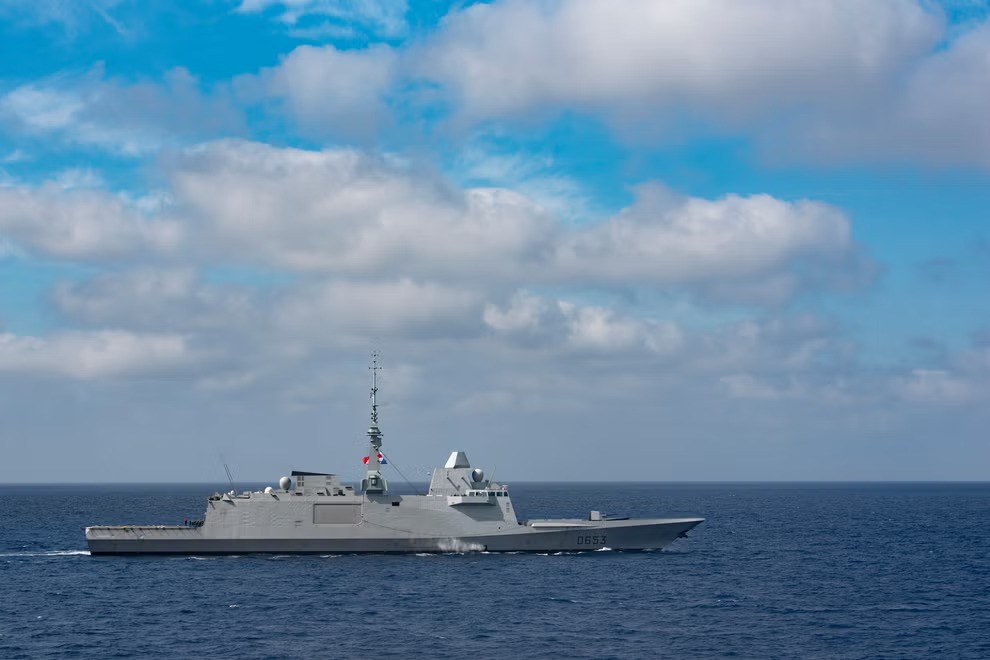French Navy frigate, the Languedoc, came under attack from two drones originating from Yemen. The Armies Ministry of France confirmed the incident, stating that both drones were successfully intercepted and shot down by the warship.
The statement, released on Sunday, provided limited details, refraining from attributing the attack to any specific group. The lack of clarity on the responsible party raises concerns about the complex and volatile situation in the region.
The Red Sea has been a focal point of geopolitical tensions, with Iran-backed Houthi rebels in Yemen openly declaring their intent to target ships navigating the strategic waterway.
The Houthi rebels have consistently opposed Israel, and their threats have intensified since the October 7 assault on Israel by Hamas militants, which triggered a deadly conflict.
According to the French Armies Ministry, the two drones approached the Languedoc consecutively, with a two-hour gap between them.
The warship, stationed about 110 kilometers off the Red Sea port of Al Hudaydah on the Yemeni coast, successfully neutralized both threats.
The ministry did not disclose the specific weaponry employed by the Languedoc to bring down the drones, leaving the public and international observers curious about the military capabilities involved in thwarting such attacks.
The incident comes amid heightened concerns about maritime security in the Red Sea, a critical waterway for global trade.
It serves as a key passage for oil shipments and trade between Europe and Asia, making any disruptions a matter of international concern.
French Navy missions in the Red Sea have been focused on maintaining stability and ensuring the free flow of maritime traffic.
The thwarted drone attack underscores the challenges faced by naval forces in the region and highlights the need for continued vigilance in the face of evolving threats.
As the situation develops, the international community will likely closely monitor events in the Red Sea, with a particular focus on efforts to identify the perpetrators of such attacks and the potential ramifications for regional stability.
The incident serves as a stark reminder of the complex geopolitical landscape in the Red Sea region, where ongoing conflicts and rivalries have far-reaching implications for global security and trade.
This article was created using automation technology and was thoroughly edited and fact-checked by one of our editorial staff members



